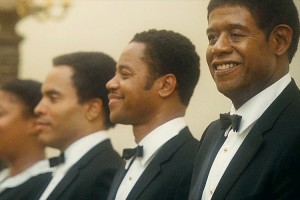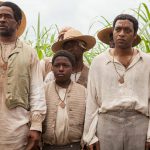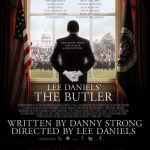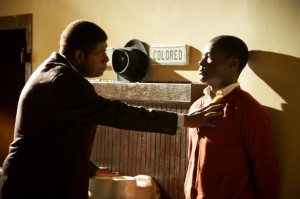 I spoke to Oscar-winner Cuba Gooding, Jr. about his role in “Lee Daniels’ The Butler” as Carter, a colleague and friend of Cecil, the character played by Forest Whitaker.
I spoke to Oscar-winner Cuba Gooding, Jr. about his role in “Lee Daniels’ The Butler” as Carter, a colleague and friend of Cecil, the character played by Forest Whitaker.
My favorite scene with your character is when you had to post bail for Cecil’s son, Louis.
The whole idea behind it and reason I was so attracted to this screenplay was that it is an expose of the times all the way back from slavery to the inauguration of Barack Obama, and specifically the turmoil of the era after JFK and Martin Luther King were assassinated. There were different thoughts about how best to respond to racism. One was the view of Martin Luther King, Jr. mindset that we should be seen as accessible and approachable and lead by example, and the other more aggressive frame of mind, the “by any means necessary” views of the Black Panthers and Malcolm X. What’s beautifully expressed in this movie is how it doesn’t alienate people but shows these two approaches in a way that’s accessible and open and un-opinionated. That’s what makes Lee Daniels such a brilliant director. I always say to him, “If Spike Lee did this movie, no one would see it. He would have had his opinions and his personal beliefs encroaching on it. As a gay, black filmmaker, there is so much truth in his life that Lee’s willing to expose. There will be raw and uncomfortable moments because he does not know anything but the truth. And in that scene, you have Carter, a butler who is forced to wear a certain face to those around him, dignitaries, he has to be professional to the nth degree. Louis is trying to find his way with a more aggressive stance. But he knew he could come to Carter because they had a relationship. My character is there to show that even though they had to act in a particular way, they had to be representative of something they were still human. That is a very humanistic scene, so people can identify that this is a family with very real issues.
Yes, your character had an upstairs face and a downstairs face.
I fell in love with the idea of doing this script when Lee sent it to me five or six years ago. This is a powerful, encompassing tale of what African-American men have been dealing with since the formation of this country. I’m a huge fan of boxing and I have studied the history of pugilism. When Jack Johnson was the first black heavyweight. He was dominating boxers. He was only looking to fight white boxers because they wouldn’t fight him. When they finally did get rid of him, they looked for any opportunity and finally found it. It took 40, 50 years for another black champion to come along because it was like “we’re not going to have that scenario again.” And then came Joe Louis. Was he any less talented or ferocious? No. But he knew he had to act different to be accepted. He was the polar opposite of everything Jack Johnson did. That’s what makes this movie great. You have these butlers who have to be “invisible in the room — the room should feel empty with them in it,” as it says in the script. That is their job. And then there are the locker room scenes, which are full of life! You see that these were living, breathing, powerful men. And that is why being in this film has been such a blessing.
That’s one of the reasons the first scene with Richard Nixon is so meaningful — he comes into the kitchen, the private, backstairs, backstage space.
My favorite scene!
What do you hope the teenagers and who are too young to remember the 60’s and 70’s will get from this film?
There’s such a disconnect with today’s youth in understanding the atrocities that happened on American soil. That’s how “Django Unchained” can be a huge hit because they aren’t identifying what it really meant to be a slave, to watch a man rape your wife and allow it to happen. This next generation of kids will be making decisions for us and they’re not up to date on understanding the past. It’s horrifying to me. I want people to talk in the car on the way home — about the love story or about the freedom riders or about the politics. As long as they’re talking, we know we did our job.
 In honor of my DVD Pick of the Week, Lee Daniels’ The Butler
In honor of my DVD Pick of the Week, Lee Daniels’ The Butler, I’m giving away a copy of the book that inspired it, the true story of Eugene Allen, the man who served as a White House butler. The Washington Post’s Wil Haygood first found Allen as Barack Obama was about to be sworn in as the first African-American President. With a foreword by the Academy Award nominated director Lee Daniels, The Butler not only explores Allen’s life and service to eight American Presidents, from Truman to Reagan, but also includes an essay that explores the history of black images on celluloid and in Hollywood, and fifty-seven pictures of Eugene Allen, his family, the presidents he served, and the remarkable cast of the movie.





